Traditional retail markets and the battle to stay afloat
- Published
BBC News visits Kirkgate Market in Leeds
British markets are seen as a microcosm of the city or town in which they are based, encapsulating the diversity of communities and skills a place has to offer. But with some being sold off due to their prime locations and others fighting for their existence amid the rise of discount supermarkets and online retailers, will generations to come be able to enjoy them?
Kirkgate Market has been selling food and goods to the people of Leeds for more than 150 years.
The winner of "Britain's Favourite Market" for the second year in a row, the cavernous hall at the south of the city centre remains popular. But it is not immune to the need to adapt to changing trends.
Among the 170 stall-holders, optimism for the future is mixed with serious concern about dropping footfall and the rising costs of renting floor space.
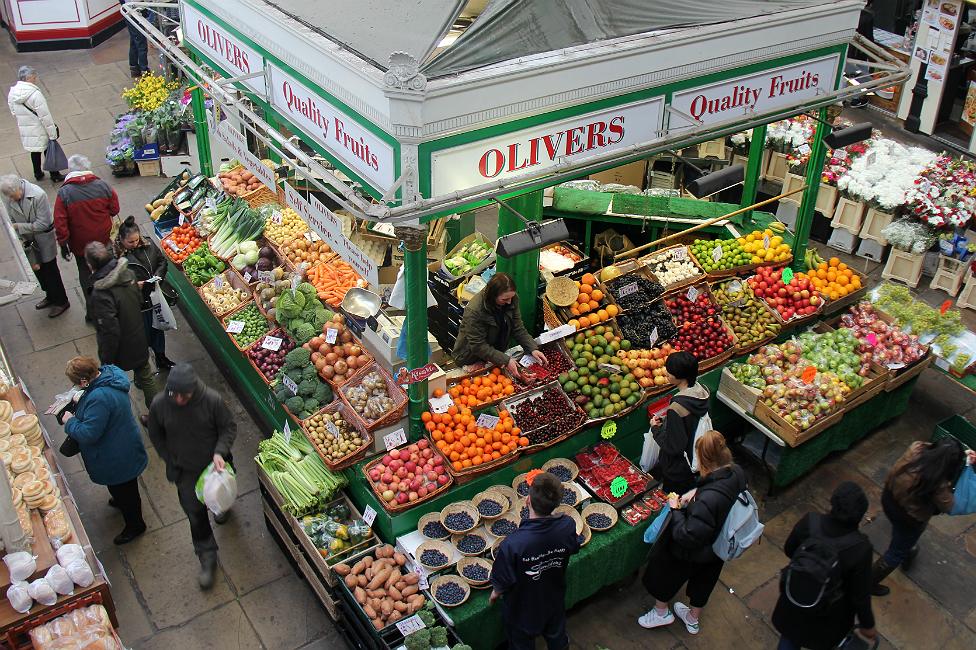
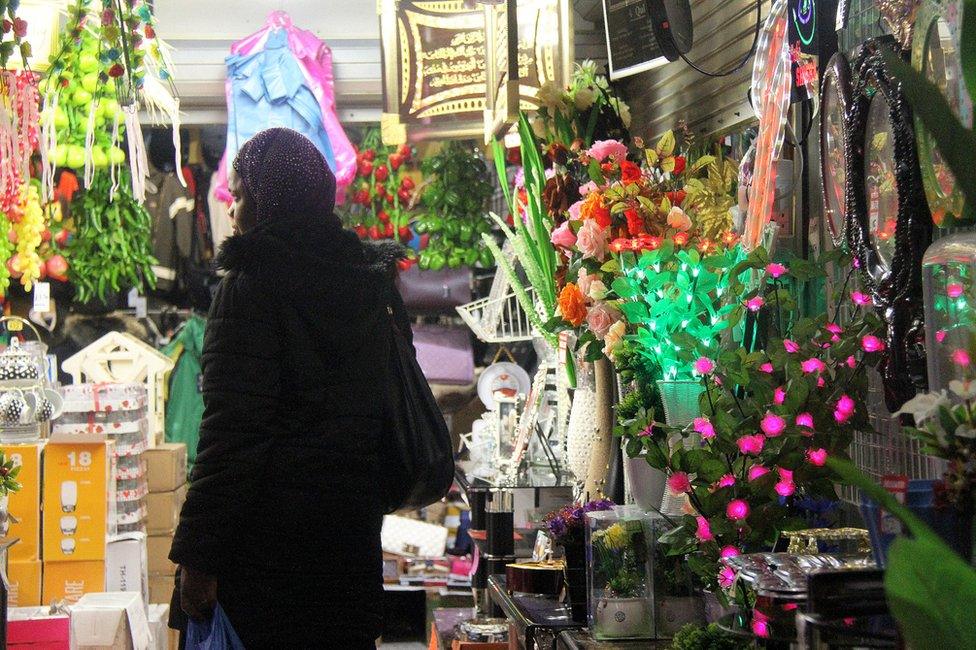
Near an entrance to the 1904 hall, with its glass roof and cast-iron balcony, sits North African and Middle Eastern food vendor Cafe Moor.
Owner Kada Bendaha set up his stand after a life-changing breakfast in the bustle of London's Borough Market and its speciality food stands.
"The beauty of a market is you have that one-to-one contact, you build that relationship with your fishmonger or butcher," he said.
"If you go to the fish section, there's a gentleman there who has been there for 38 years, you go and ask him about a particular fish, he knows the business inside out.
"Go to a supermarket and you will have a student who is just working part time there, it's not the same."
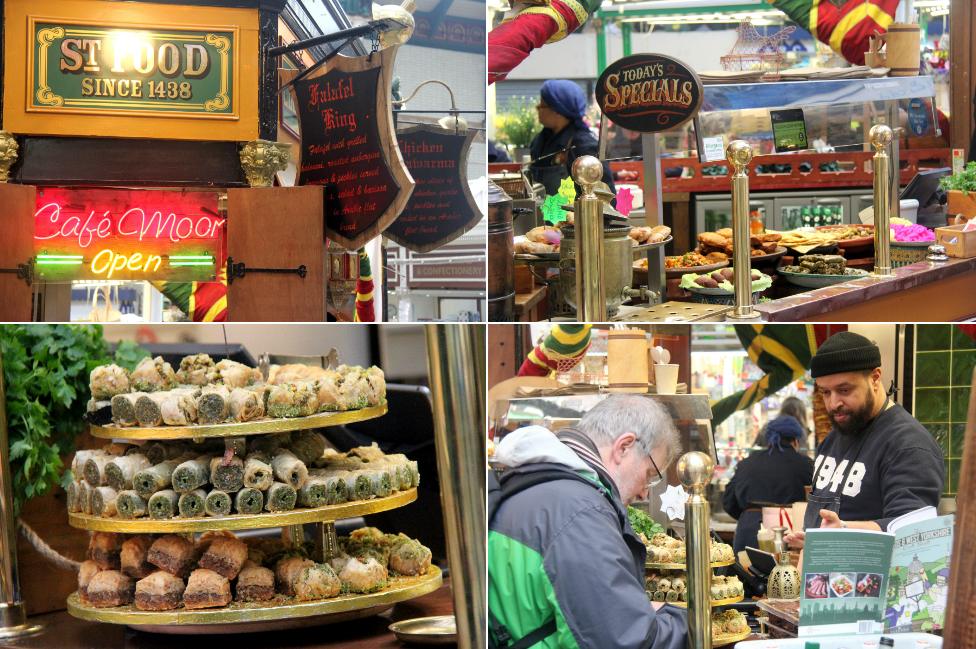
Dating back to 1857, Kirkgate has become one of the largest indoor markets in Europe, selling fish, meat, fruit and vegetables, clothes, jewellery, haberdashery, flowers and hardware.
The booming voice of a butcher offering the day's best prices still echoes down its walkways, although e-cigarette stands and racks of iPhone covers tick off some modern requirements.
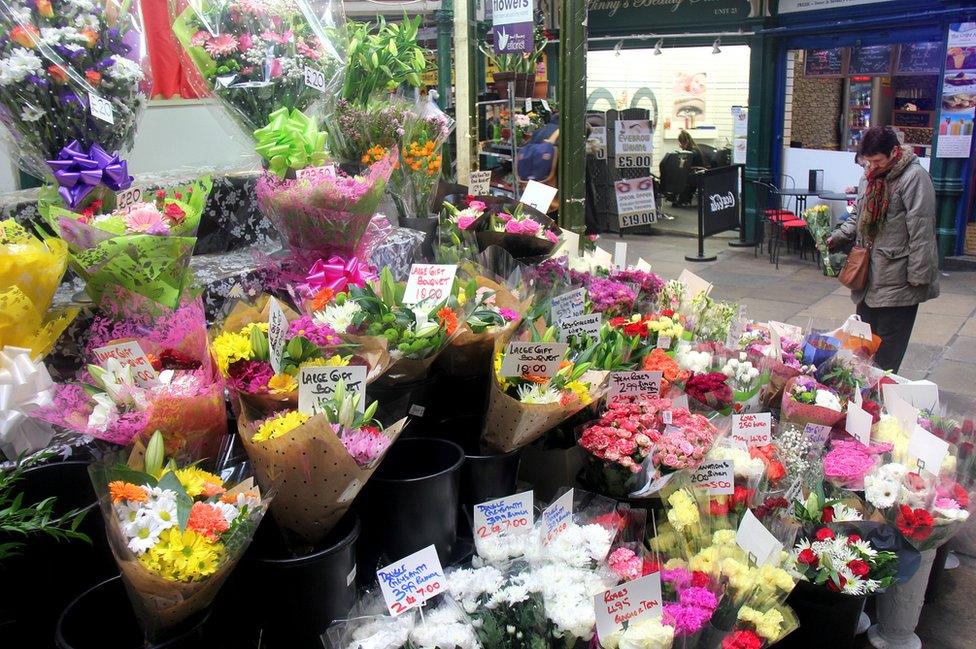
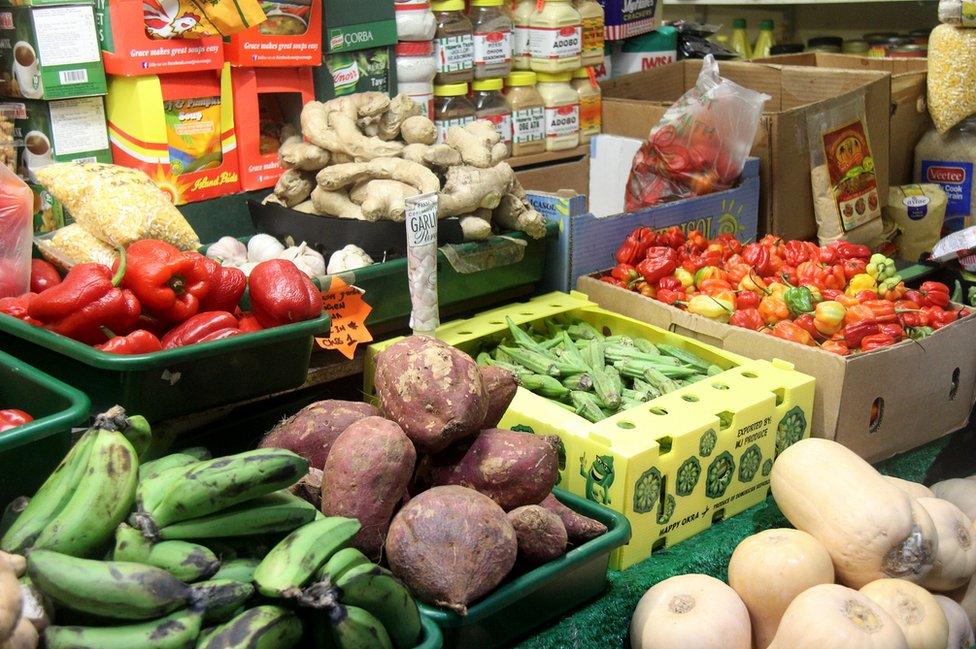
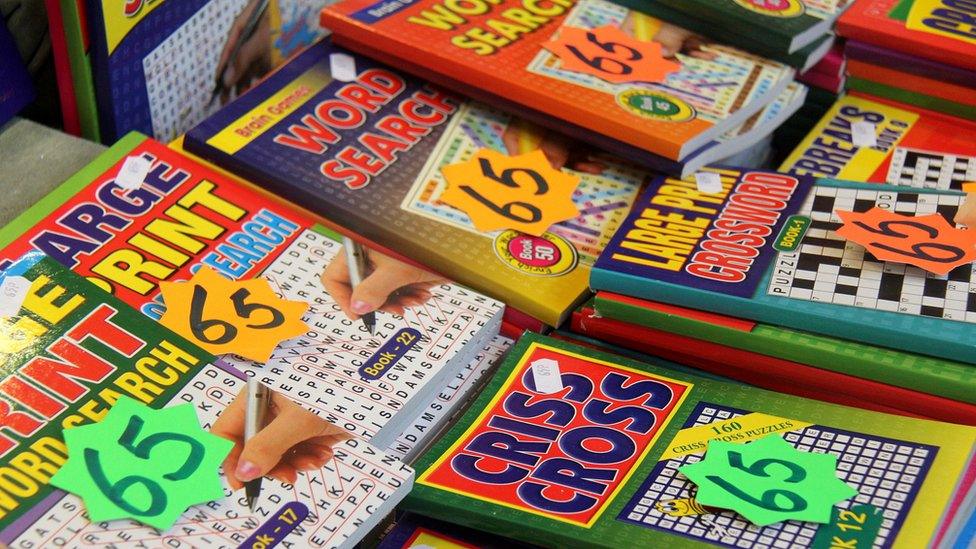
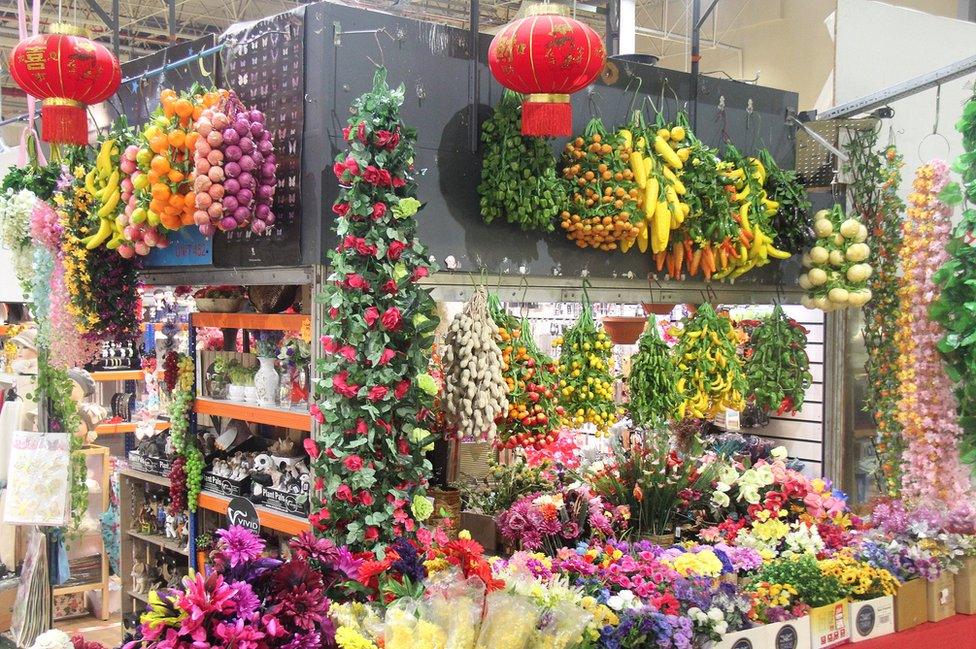
It has been a turbulent time for the Leeds City Council-run market over the past couple of years, with temporary walls and scaffolding becoming a familiar sight during a £13.7m renovation.
Despite the council reducing rents during this period, stall-holders have complained of regulars becoming put off and heading elsewhere.
Monthly footfall at Kirkgate dropped significantly from 718,000 in 2014 to 628,000 in 2015, but the number rose again to 699,000 in 2016.
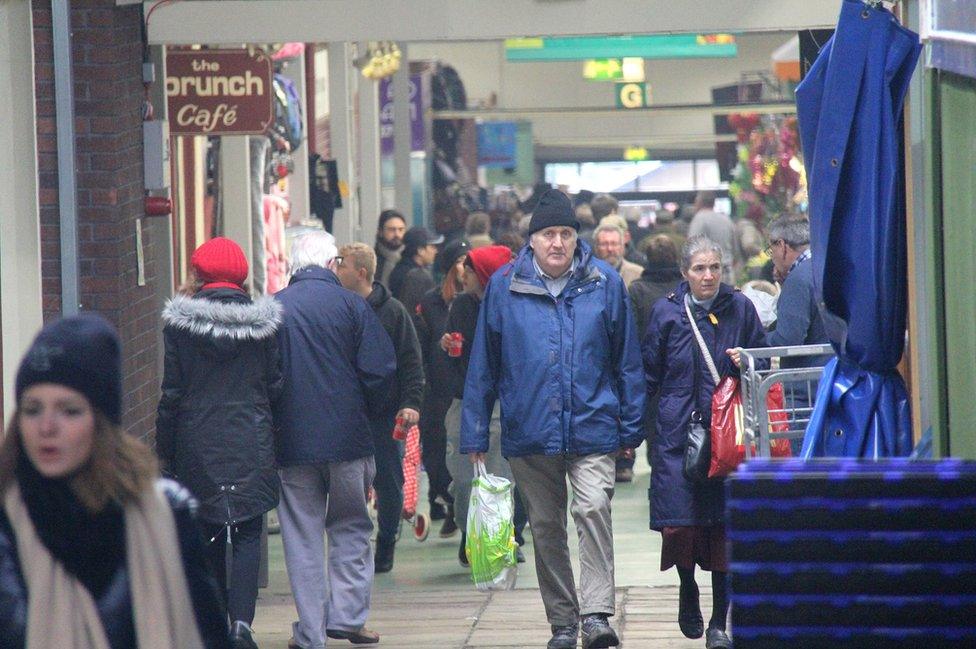
Leslie Burwell, of Whitaker's Farmhouse Eggs, has worked in the market for 25 years in total.
She said: "It used to be heaving, you couldn't move for people down the aisles, there was an atmosphere with people shouting.
"They've taken all of the shops out of one section and made a big wide open space - they have spent millions of pounds and have nothing to show for it."
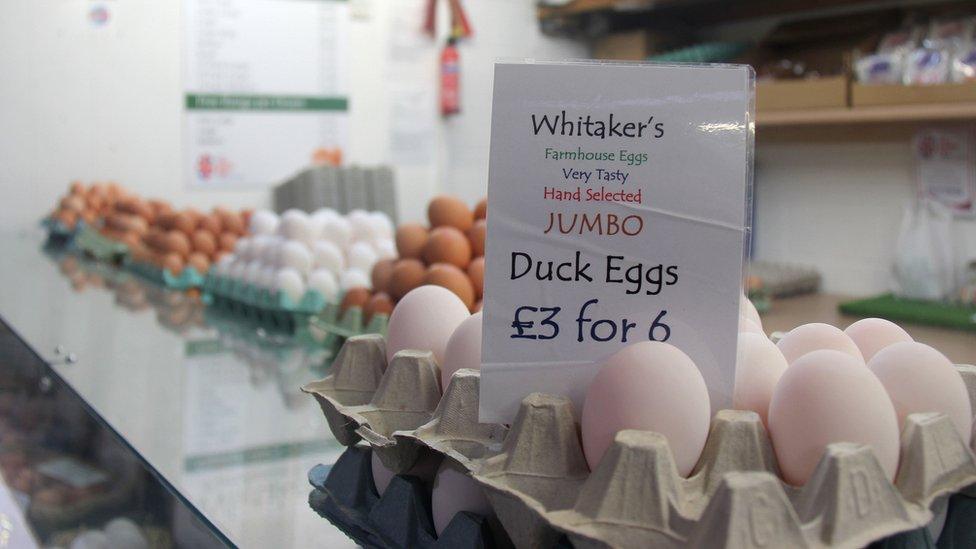
Kashif Ali Raja, who recently took over Spice Corner, said he was positive despite widespread change.
He said: "When you start a business, you have to work really hard. There's early mornings, working late.
"We sell seeds, fresh vegetables, things which are very difficult to find in Leeds, this is the only place you can get it.
"I don't think recent changes have made any difference, because the regular customers are the same, they will always come."
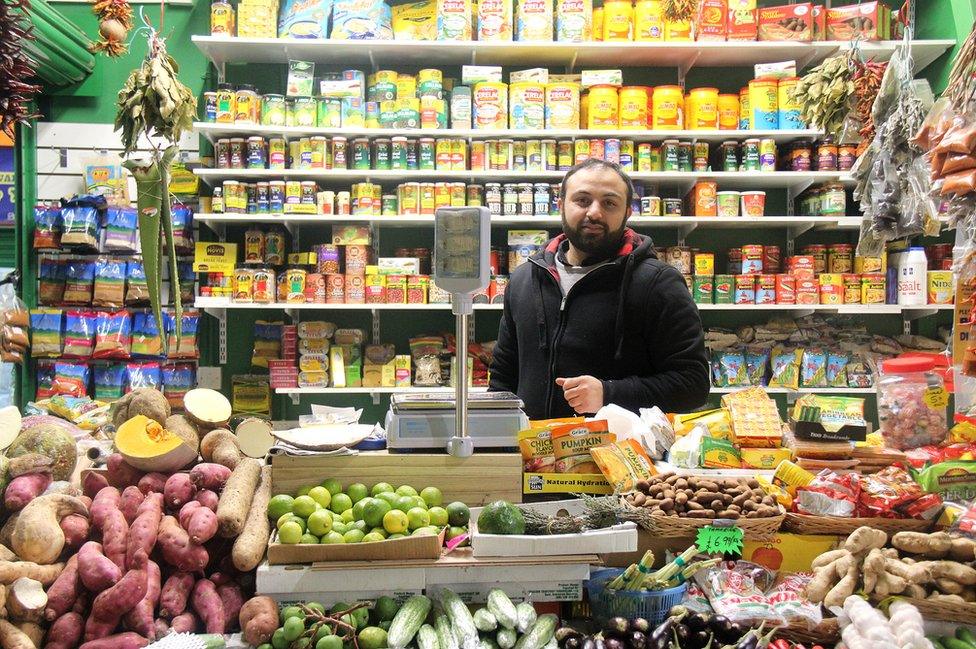
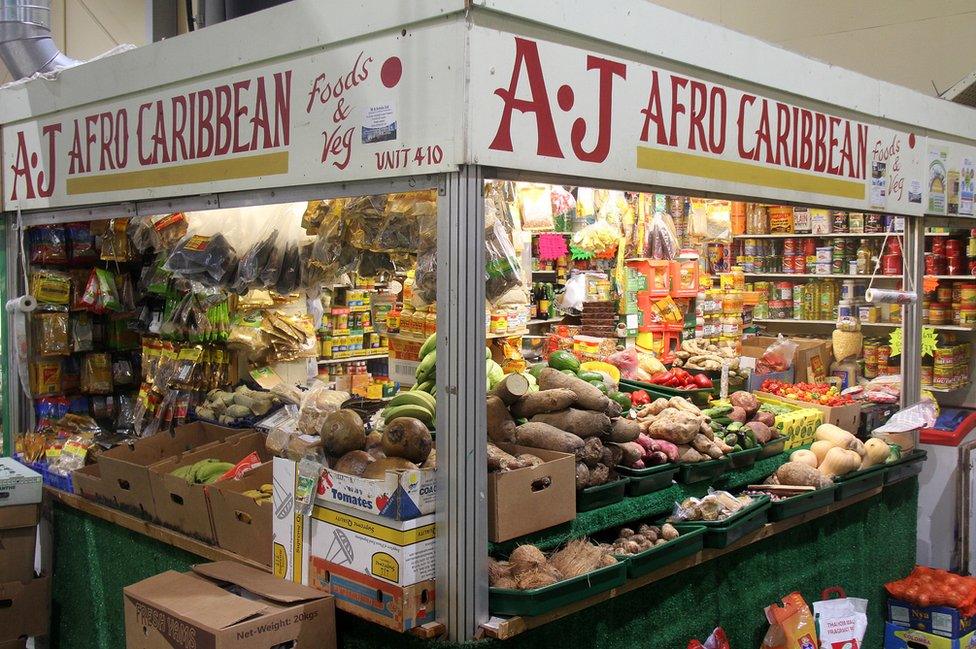
The outdoor section of Kirkgate, with its fruit stalls, luggage-sellers and flea market, is where Michael Marks opened his Penny Bazaar, leading to the founding of Marks & Spencer in 1890.
The patch now sits a stone's throw away from the newly-opened 42,000 sq m Victoria Gate complex, a £165m retail development featuring a flagship John Lewis store.
Leeds City Council wants the market to be able to take advantage of the expected increase in shoppers in the area, but not everyone feels it will make a difference.
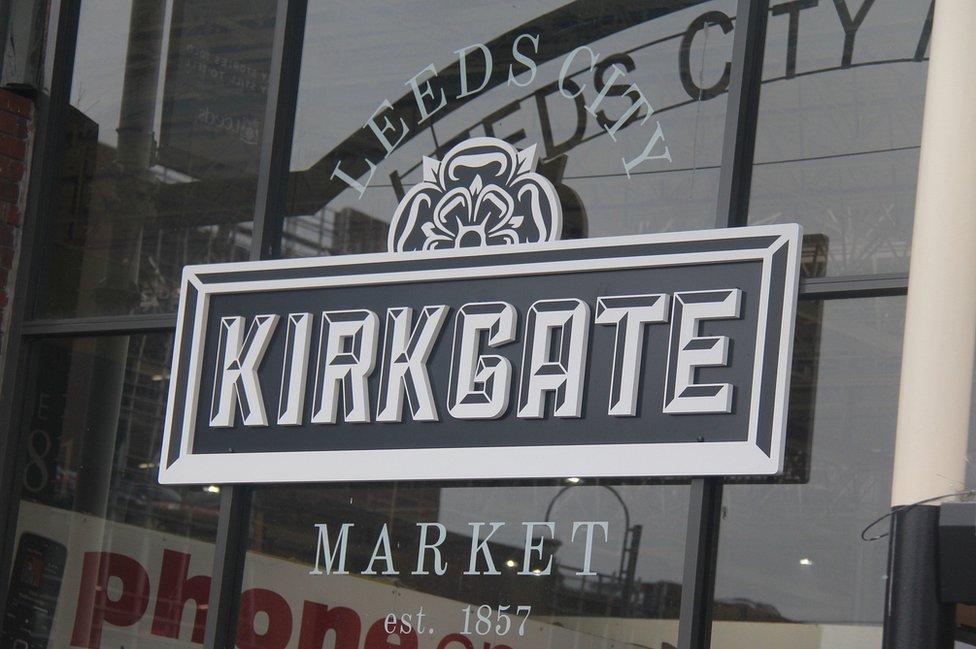
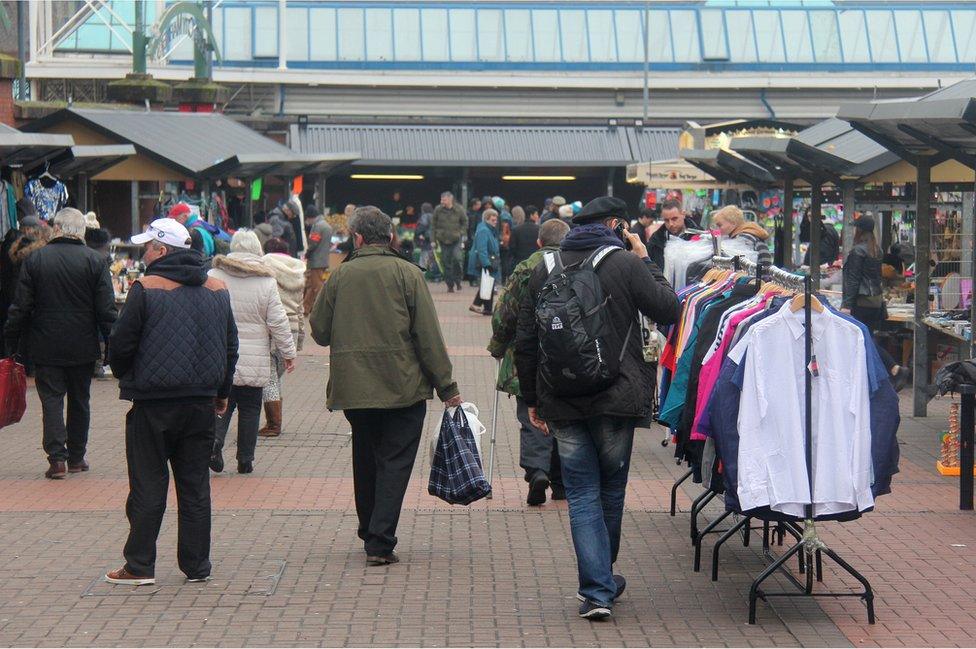
Julie Carr has worked in the outdoor section for 35 years and now sells second-hand toys and collectables at her stall.
She said: "The new John Lewis has made no difference to us, I don't think their customers and ours are connected at all.
"My theory is in 20 years there will be no shops, no markets, everything will be online and people will say 'I remember when we used to go to the market' - and they've gone."
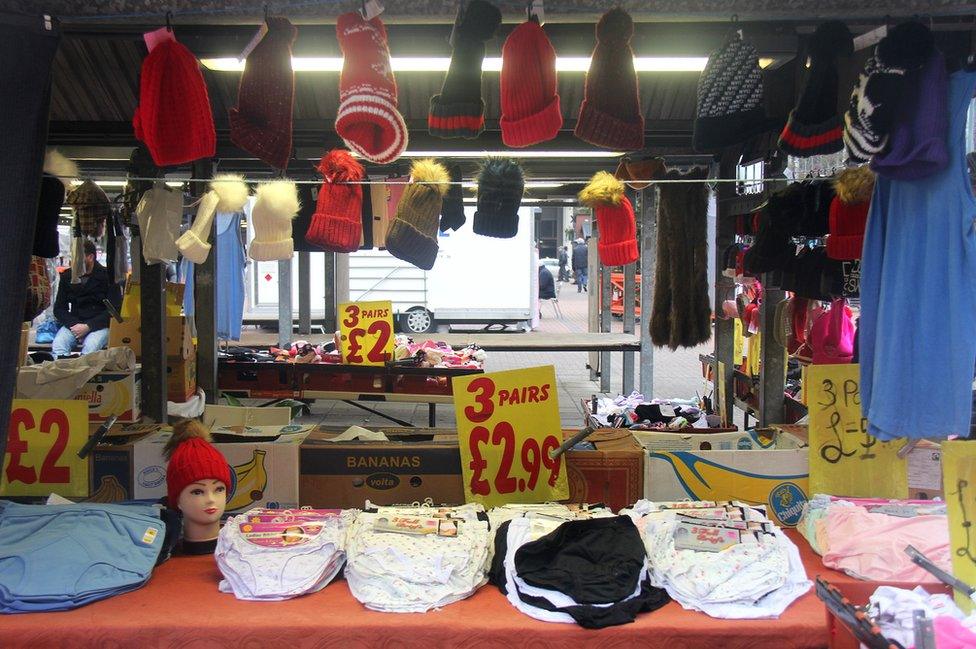
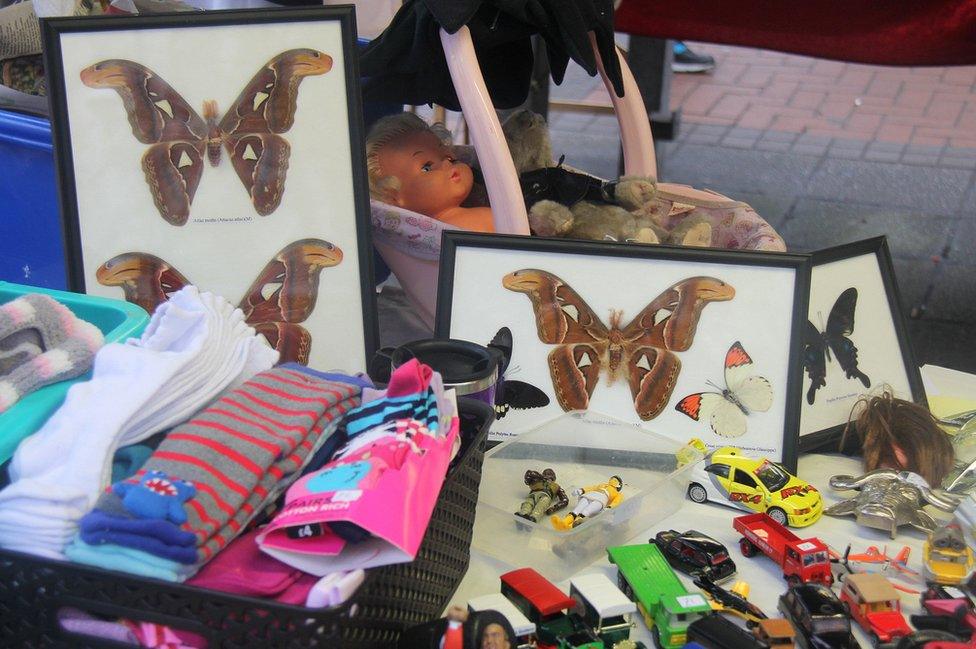
The market's 1976 Hall has seen the most significant change, with the space transformed into a brightly-coloured communal seating area, where established "street food" traders have decided to set up permanently.
A rotating schedule of craft fairs, live music and kids' entertainment is used to draw people in, with long tables encouraging those new to the market to get chatting to those who have been regulars for decades.
One of the new food traders is the Yorkshire Wrap Company, selling hot meals wrapped up in a Yorkshire pudding.
Michael Pratt, who runs the stall, said: "First impressions are good, word of mouth seems to be getting out about the new food hall area.
"It's bringing a lot of different faces into the market, people who maybe wouldn't have usually come here."
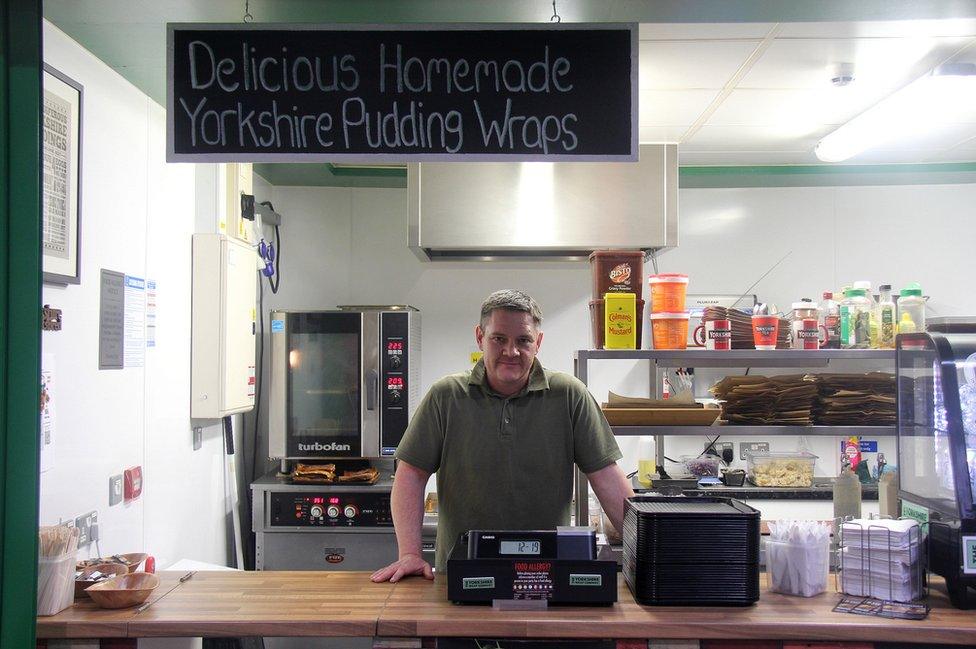
He added: "Markets give a sense of community and the ability to get everything under one roof, great produce for great prices. I think they're going from strength to strength."
Down in the basement of the top end of the market, Brian Bettison has been providing haircuts since 1982. He said rents for stalls had gone "up and up and up".
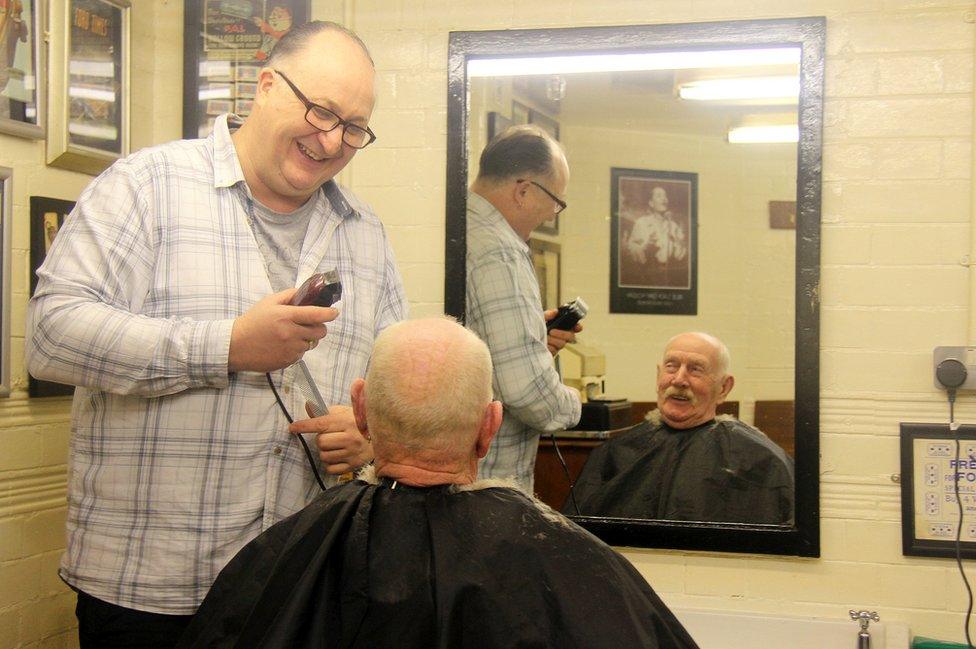
He said: "They've had numerous different ways of doing it through the years, it was measured on square footage, it was zoned into the most desirable areas.
"Everyone now has different agreements with the markets, nobody will let you know, they will keep it to themselves."

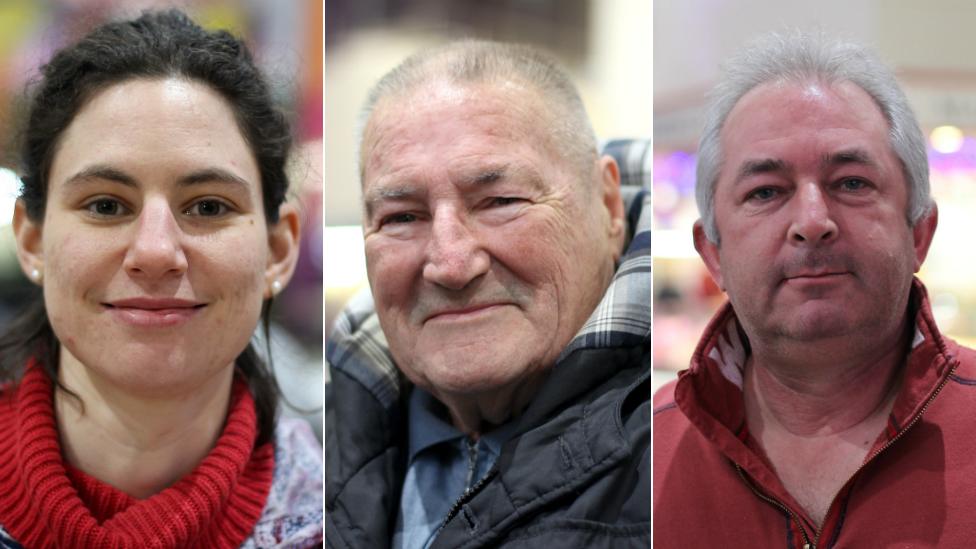
What do the shoppers think?
Anna Woollett, 30, from Meanwood in Leeds: "I buy all of my fruit and vegetables from here, because I like to buy food fresh and it's far better quality than in supermarkets and lower prices. It's a really big part of my life. If I had to move to another city, one of the first things I would check out is if there's a decent market."
Maurice Collinson, 81, from Beeston, Leeds: "I'd like to see more stalls come in but they can't afford them as the prices are going up all the time. I've been coming here all of my life and it's a beautiful building, the top half is really what it used to be, it's really good."
Paul Eccles, 50, from York, said: "The international food here is fantastic, stuff from north Africa, Asia, it's great. It's important they invest in them."

Close to where the indoor market meets the outdoor section, Cheryl Murtheh has been selling cosmetics for 16 years.
She said: "They're giving cheaper rent to newcomers coming in, but they should lower the rents of people who have been here a long time.
"What happens to the people who have been keeping you going for years, shouldn't they be entitled to something as well?"
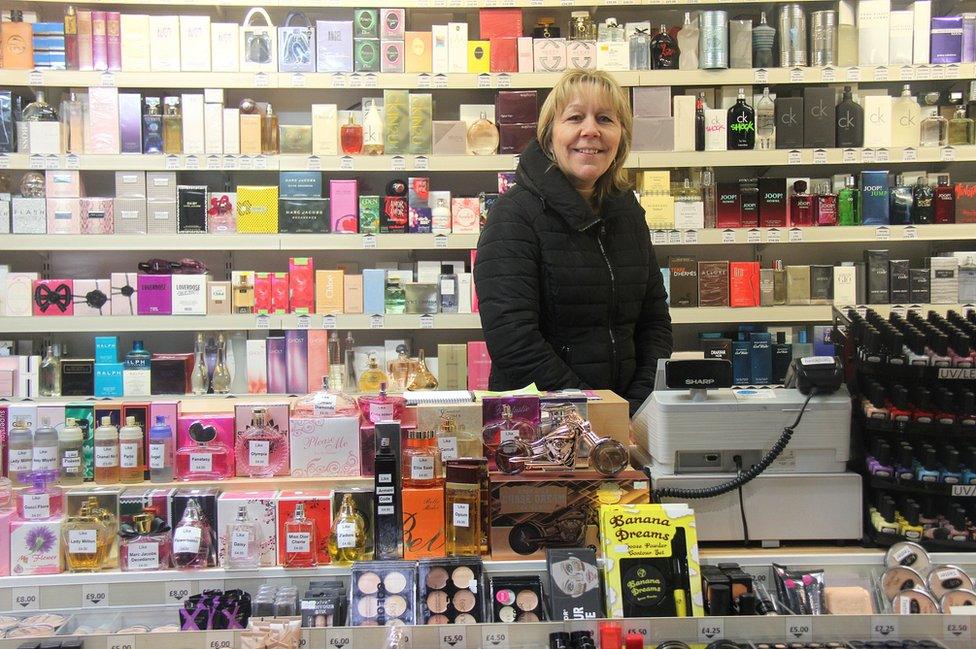
According to the National Association of British Market Authorities, from 2009 to 2016 the number of market traders in the UK dropped from approximately 55,000 to 32,000.
The recession has been highlighted as a key reason for this, although there is some evidence the sector as a whole has started to turn a corner.
The National Market Traders Federation (NMTF) said traditional retail markets currently have a collective annual turnover of £2.7bn, with the figure increasing by £200m year on year since 2013.
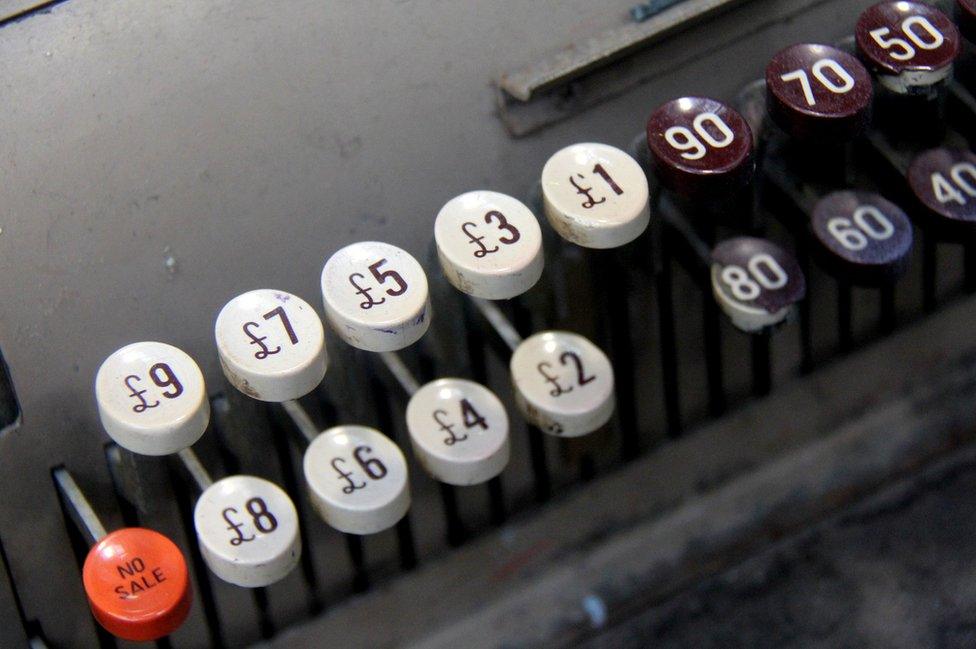
Like Kirkgate, several markets across the UK are adapting to modern trends to cater for younger shoppers.
Many have introduced hot food areas, improved their branding, have extended opening hours and provided free wi-fi.
Joe Harrison, chief executive of the NMTF, said: "It's easy to follow trends, but five years down the line you may realise you've got nothing.
"They need to make sure careful steps are taken to keep them popular with the next generation, but it needs to have that social value, dealing with every demographic rather than focusing on one specific thing as it's currently the most economically viable."
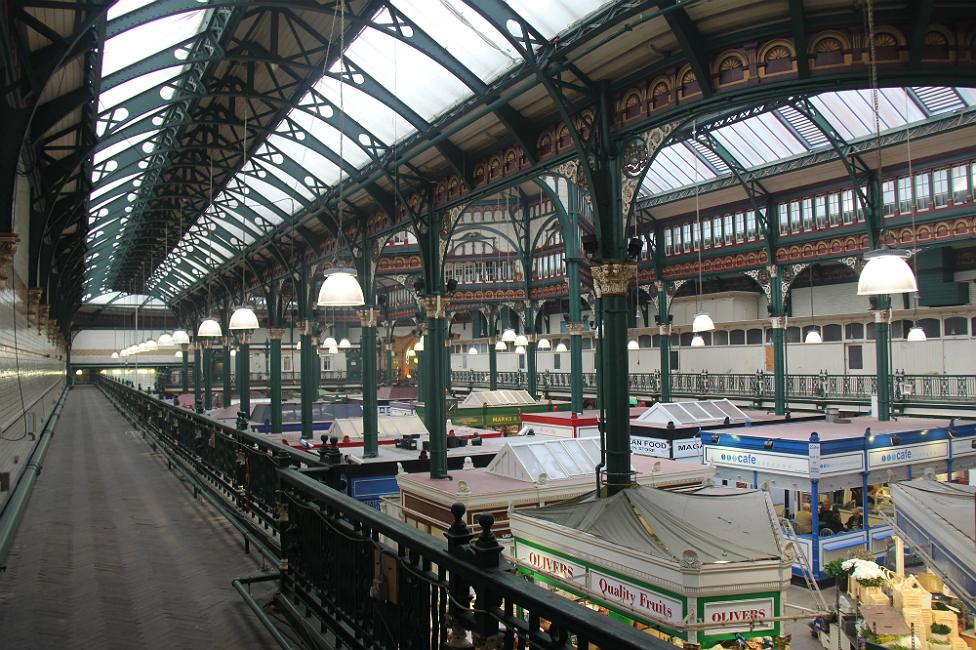
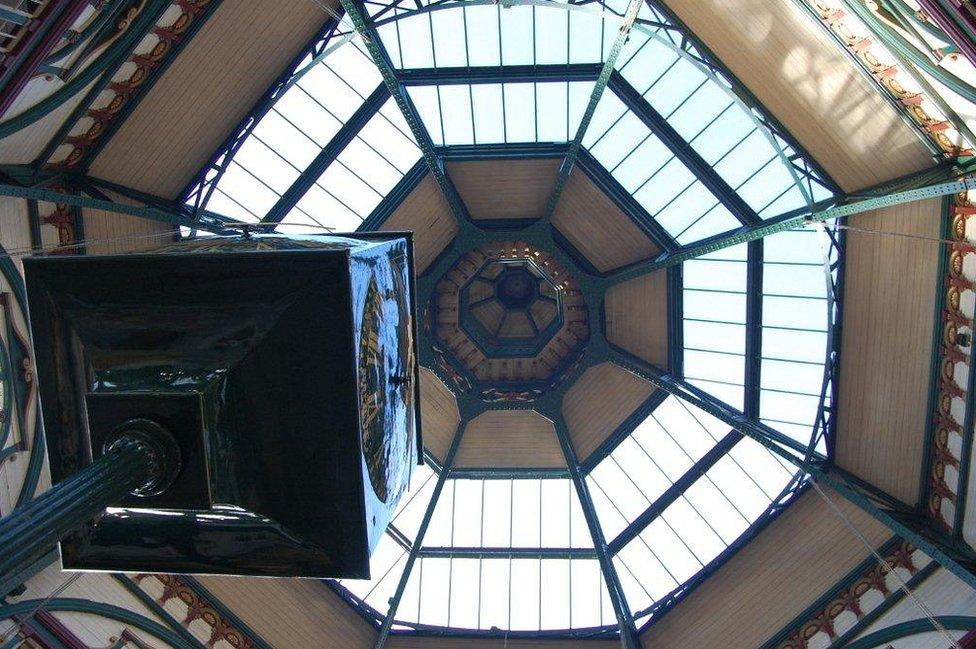
Leeds City Council said visitor numbers were now "on the up" since the refurbishment, with the number of vacant units "also reduced significantly".
A spokeswoman said: "We recognise that there is still some way to go but we are very optimistic that more and more visitors will continue to discover the traditional charm combined with the new modern areas that Kirkgate has to offer."
Clearly the market has reached a key moment in its history, with bold decisions about the site's future use being made.
While serving up mint teas and chicken shawarmas to lunchtime customers at his food stand, Mr Bendaha said: "This is not just a full-time job, it's a lifestyle and it's a big part of the city.
"Hopefully it will never die."
- Published16 July 2015
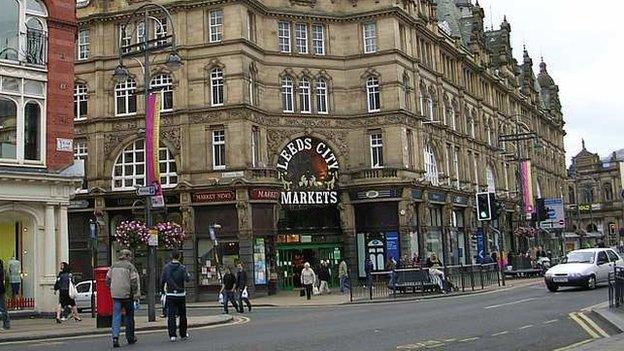
- Published16 May 2014
